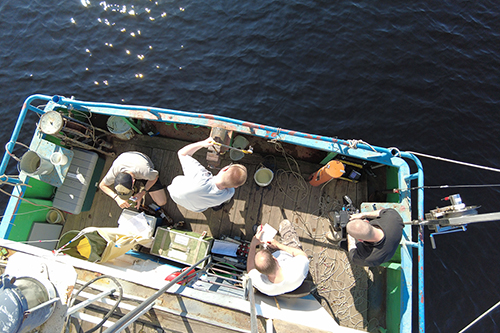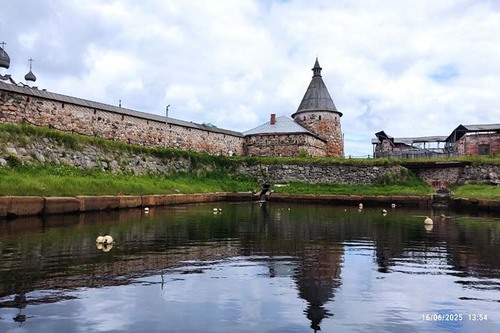Furthermore, on July 10, the Russian Science Foundation announced the results of the youth grant competitions. Albina Kochneva won the open call competition for research by young scientists with the project “Molecular mechanisms of host-parasite relationships: the case of cestode Ligula intestinalis and bream Abramis brama”.
Albina Kochneva started her research on the biochemical features of parasites as a bachelor student and continued in her Master's and doctoral studies under the supervision of Dr. Lev Pavlovich Smirnov, Doctor of Biological Sciences. In 2022, she defended her doctoral thesis on “Proteomes of some cestode species in different stages of the life cycle”.
– Cestodes are highly specialized organisms. They are obligate parasites, i.e. they cannot exist without a host. They have a number of morphophysiological features, such as a reduced digestive system. The adaptations of cestodes to the parasitic lifestyle are based precisely on the synthesis of specific proteins encoded in their genome. Our whole work cycle was aimed at studying the various aspects of how cestodes adapt at the molecular level, mainly at the level of proteins, to the parasitic lifestyle. These adaptation mechanisms are still poorly understood, – told Albina Kochneva.
A collaborator of Albina Kochneva in this study was Ekaterina Borvinskaya, Cand.Sci. The researches focused on fish helminths – Triaenophorus nodulosus, Triaenophorus crassus and Schistocephalus solidus. At the first stage, the researchers compared the protein composition of parasites in different stages of the life cycle. Larvae (plerocercoids) and adults inhabit different habitats, as they parasitize different species of organisms. Also, parasites at different stages of the life cycle pursue different goals: first to mature and grow, then to produce as much offspring as possible.

Albina Kochneva and Ekaterina Borvinskaya experimentally incubating the parasite Schistocephalus solidus to get adults from larvae
The second module of the study was to compare different body parts of tapeworms. For one of the species, the scientists showed the protein composition to depend on the function of different parts of the body. In particular, the head of the worm carries the attachment organs, the neck is the growth zone, and the rest of the body consists of repetitive segments that mainly contain the sexual system. The main goal of the parasite is to breed and produce a large number of eggs.
Finally, in the last step, the scientists scruitinized the proteins that are involved in the interaction between the parasite and its host.
– We needed to identify the proteins occurring in the zone of physical contact between the parasite and the host. This is important for understanding how, for example, the parasite obtains nutrients from the host, or how the parasite and host defend themselves against each other's immune system, and so on, – the author of the study explained.

Triaenophorus sp. – a classical object of parasite research in Russia
The researchers used classical biochemical methods and modern methods and approaches of proteomics, i.e. the science that studies the protein composition of an organism. The protein profiles of the studied helminth species were described for the first time. Furthermore, the scientists produced a database of nucleotide sequences encoding the proteins of Triaenophorus sp. – a classical object of parasite research in Russia.
The results of this study were published in Russian and foreign scientific outlets, including Biology Open and Acta Parasitologica. They are important for basic science and are of practical significance. Thus, new knowledge and insights into the molecular basis of helminth life and unique data on biochemical adaptations of cestodes to a parasitic lifestyle have been obtained. These data can be used in the veterinary and agricultural industries, for example, to identify target proteins when developing antihelminthic drugs and to monitor the condition of fish in natural waters and fish farms.
Congratulations to Albina Kochneva on her professional accomplishments and wishes for fruitful research in the future!
Photos from Albina Kochneva’s archives and KarRC RAS Science Communication Service








